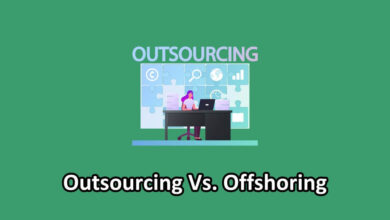Are you confused about the difference between a void and voidable contract? Do legal terms like offer, acceptance, consideration, and capacity seem foreign to you? Look no further! In this comprehensive guide to understanding contract law, we will break down everything you need to know about contracts. Whether you’re starting a business or simply want to understand your rights as a consumer, this blog post is for you.
Void Vs Voidable Contracts (Comparison Chart)
| Void Contract | Voidable Contract |
|---|---|
| A void contract is an agreement that is not legally enforceable due to a defect or illegality in its formation. | A voidable contract is an agreement that is legally valid and enforceable but may be voided by one of the parties due to certain circumstances such as misrepresentation or coercion. |
| A void contract is considered null and void from the beginning, meaning it has no legal effect right from the start. | A voidable contract is initially considered valid and enforceable, but one or both parties have the option to void the contract. |
| Since a void contract is inherently invalid, it has no legal consequences. | It can result in legal consequences if voided. |
| A void contract lacks mutual consent, due to factors like incapacity or fraud. | A voidable contract is based on mutual consent but can be voided due to certain factors. |
| A void contract provides legal protection to both parties since it is invalid and unenforceable from the start. | It offers legal protection primarily to the party with the option to void. |
| A void contract can be declared invalid at any time, even after the contract’s formation. | A voidable contract can be declared void within a specific time frame or until the party with the option to void exercises their right |
| It cannot be ratified or validated. | It can be ratified if the party with the power to void affirms the contract. |
What is a Void Contract?
A Void contract refers to a contract that is legally invalid or unenforceable. A void contract is not legally binding and no legal obligations are imposed on either party. This means that even though a contract may have been made, it has no legal effect and thus can be disregarded.
Void contracts may be created due to a number of reasons, including lack of consideration, mistake, misrepresentation, duress, or undue influence.
What is a Voidable Contract?
A Voidable contract, on the other hand, refers to a contract that is valid and binding but can be terminated or annulled by one of the parties involved. Generally, in a voidable contract, one of the parties has a right to cancel it due to certain factors, such as misrepresentation or mistake, making it voidable but not necessarily void.
Additionally, a Voidable Contract is different from a void contract, as it can be enforced even though the parties involved have the option to terminate it.
Factors that Make a Contract Void or Voidable
There are a number of different factors that can make a contract void or voidable. In some cases, a contract may be void if it was never properly executed in the first place. In other cases, a contract may be voidable if one of the parties to the contract was not legally capable of entering into it. Additionally, a contract may be void if it is illegal or against public policy. A contract may be voidable if one of the parties to the contract breached their obligations under it.
Examples of Void and Voidable Contracts
2 Examples of Void Contracts:
- For instance, a contract made between two parties that is illegal, such as a contract to buy and sell illegal drugs, is void.
- Another example of a void contract is one in which an essential element is missing, such as an agreement to purchase a car without specifying the make or model.
2 Examples of Voidable Contracts:
- A contract made under duress or undue influence can be considered voidable and can be set aside by either party if they choose to do so.
- A contract made with a minor may also be considered voidable since minors are not legally able to enter into binding contracts.
Key Differences Between Void and Voidable Contracts
1. Validity:
- Void Contract: A void contract is considered null and void from the beginning, meaning it has no legal effect right from the start. It is invalid and cannot be enforced.
- Voidable Contract: A voidable contract is initially considered valid and enforceable, but one or both parties have the option to void or affirm the contract.
2. Consent:
- Void Contract: A void contract lacks the element of mutual consent. It may occur when one party is a minor, mentally incapacitated, or obtained through fraud, duress, or undue influence.
- Voidable Contract: A voidable contract is initially based on mutual consent. However, due to certain factors such as mistake, misrepresentation, undue influence, or coercion, one or both parties have the option to void it.
3. Legal Protection:
- Void Contract: A void contract provides legal protection to both parties since it is invalid and unenforceable from the start.
- Voidable Contract: A voidable contract offers legal protection primarily to the party with the option to void. They can choose to enforce the contract or void it based on their circumstances.
4. Third-Party Rights:
- Void Contract: Third parties do not acquire any rights or obligations under a void contract since it is void ab initio (from the beginning).
- Voidable Contract: In some cases, third parties may acquire rights under a voidable contract if they were not aware of the party’s right to void and acted in good faith.
5. Ratification:
- Void Contract: A void contract cannot be ratified or validated since it is inherently invalid and cannot be made legally enforceable.
- Voidable Contract: A voidable contract can be ratified if the party with the power to void willingly affirms or performs the contract, thereby making it binding and enforceable.
How to Resolve Disputes Involving Void or Voidable Contracts
When two parties have a dispute over whether a contract is void or voidable, there are a few options for resolution.
- The first option is to file a lawsuit in court, where a judge will review the contract and make a ruling. This can be costly and time-consuming, however, so it may not be the best option.
- The second option is to use arbitration, which is a process where an impartial third party hears both sides of the argument and makes a binding decision. This can be quicker and cheaper than going to court, but it can still be expensive and may not be ideal if you want a public ruling on the matter.
- The third option is to try to negotiate a resolution between the two parties. This can be done with the help of lawyers or mediators, and it often leads to a more favorable outcome for both sides since they can come to an agreement that works for them rather than having a judge impose a decision.
No matter which route you choose to take, it’s important to understand your rights and obligations under contract law so that you can make the best decision for your situation.
Conclusion
Understanding the differences between void and voidable contracts is essential for anyone involved in contract law. A thorough understanding of when a contract can be declared void or voidable will help you protect your rights and ensure that any agreements are legally binding. We hope this guide has helped you gain more insight into the nuances of contract law so that you can make informed decisions when entering into an agreement with another party.


